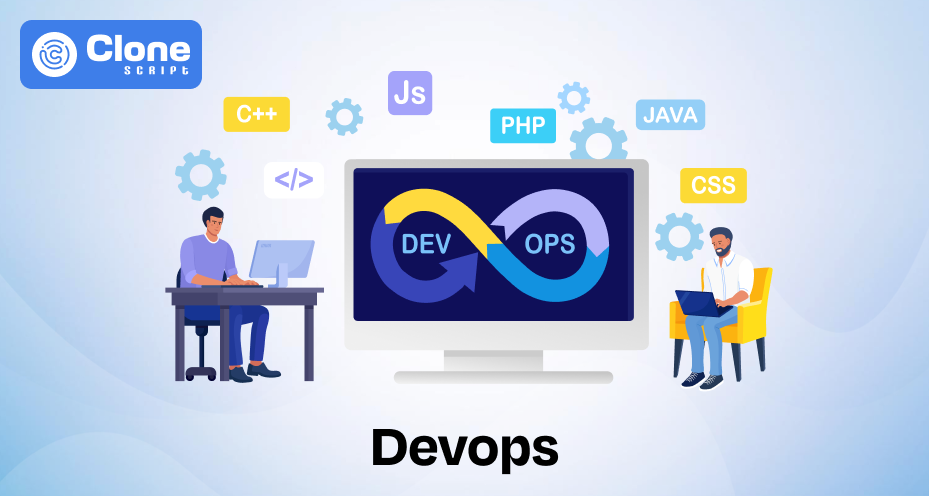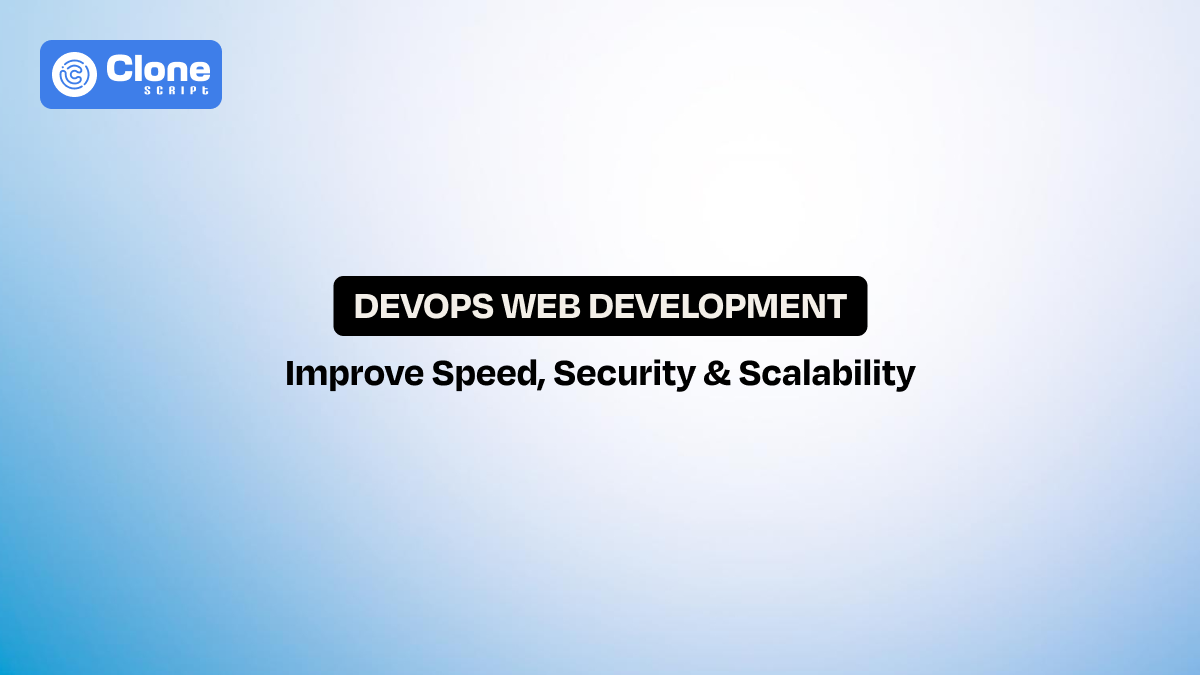DevOps Services Explained: How They Improve Speed, Security & Scalability
Business success today is driven not just by innovation but by how quickly, securely, and reliably that innovation reaches the market. Whether it’s rolling out new features in a mobile app, validating an e-commerce platform can handle thousands of concurrent users, or keeping sensitive data safe from cyberattacks, companies must operate at a speed and scale that traditional IT models simply cannot handle.
That’s why DevOps services have become a golden opportunity. They bring together development and operations teams, break down silos, and use DevOps automation, DevOps tools, and cloud DevOps practices to accelerate delivery while strengthening security and ensuring scalability.
For businesses—whether new startups or large enterprises—the question is no longer if DevOps is needed but how quickly they can adopt it. Let’s dive deeper into what DevOps services are, why they matter, and the benefits for businesses in today’s digital-first world.
What Are DevOps Services?
At its core, DevOps services combine cultural philosophies, practices, and tools that improve an organization’s ability to deliver applications and services at high velocity. Unlike traditional models where development teams write code and operations teams deploy and manage it, DevOps integrates both functions, creating a continuous feedback loop.
Key components in DevOps include:
-
DevOps automation: Automating repetitive tasks such as testing, integration, and deployment to save time and reduce human errors. This is important for matching the tight deadlines and complex integrations.
-
DevOps tools: Using technologies like Jenkins, GitLab CI/CD, Docker, Kubernetes, Ansible, and Terraform to streamline the development pipeline. This ensures the product output is based on real-time testing, not just assumptions.
-
Cloud DevOps: Using cloud infrastructure (AWS, Azure, Google Cloud) for dynamic scalability and resource optimization. It cuts off the cost to develop a proper IT infrastructure by investing a heavy amount of capital.
-
DevOps security (DevSecOps): Building security into every stage of the pipeline is becoming easier rather than treating it as a final step. So, if any vulnerability is identified, it can be solved immediately and not postponed further.
When someone asks, “What are DevOps services explained in real-world terms?”—the answer is simple: it’s about delivering better software faster while maintaining security and scalability.
How DevOps Improves Speed for the Software App Development Cycle?
For businesses, speed is often the difference between winning and losing. Traditional software release cycles could take months, leading to missed opportunities and frustrated customers. DevOps flips this model by enabling continuous integration and continuous delivery (CI/CD).
Key Drivers of Speed in DevOps
-
Automation of Pipelines
Testing, building, and deploying are automated, reducing manual effort for developers. They don’t have to wait for the confirmation. If an issue persists, it can be tested first, then designed accordingly, and deployed perfectly.
Example: A patch that used to take weeks to roll out can now be deployed in hours. This helps the entire development team to deliver the product in a dedicated timeframe without losing the quality.
-
Continuous Feedback Loops
Developers receive instant feedback through automated tests and monitoring. From there, they can take charge of rapid fixes. This prevents bottlenecks where errors accumulate until the end of a release cycle.
-
Cloud DevOps Agility
Cloud environments enable on-demand provisioning of servers and environments. So, you can say there is no waiting for hardware development. Teams can spin up environments in minutes.
-
Parallel Development
Multiple teams can work simultaneously using containerization and microservices. This reduces dependencies to deliver the software application to the business. Even the most complex apps like DEX platforms or international marketplaces can be developed without too many errors in design, coding, programming, deployment, and testing.
For startups, this means getting a competitive product out first. For enterprises, it means responding quickly to market changes without compromising reliability.
How DevOps Enhances Application Security?
DevSecOps ensures protection is built into every stage of development, deployment, and operations. This proactive approach helps businesses prevent risks before they become costly threats.
Best Practices for Security and Compliance
-
Shift-Left Security
Testing for vulnerabilities begins early in the development phase, shifting security to the “left” side of the lifecycle. By addressing flaws at the source, companies cut costs, speed up releases, and reduce the risk of exposing users to security gaps.
-
Automated Vulnerability Scans
Every code commit is scanned automatically for potential risks. It filters that unsafe code never makes it into production. This automation reduces human oversight errors while maintaining consistent and reliable security standards.
-
Compliance as Code
Regulatory frameworks such as GDPR, HIPAA, and PCI-DSS are embedded into the pipeline as code. This makes compliance part of the workflow. This approach minimizes manual checks, accelerates approvals, and keeps businesses audit-ready at all times.
-
Continuous Monitoring
Real-time monitoring tools track system health, user activity, and anomalies across environments. By detecting unusual behavior instantly, teams can respond quickly to intrusions and maintain uninterrupted service availability.
This proactive security strategy makes DevOps services for startups and enterprises equally valuable. Startups can innovate with confidence, while enterprises stay compliant with strict regulations and protect customer trust.
How DevOps Achieves Scalability in Web Development?
Here you can find out more about how this advanced solution plays a key role in making the application scalable:
-
Cloud-Native Design
Applications are built using cloud-native principles, which means they can automatically scale up or down based on user demand. This flexibility allows businesses to serve more customers without worrying about infrastructure limitations.
-
Containerization & Orchestration
Technologies like Docker and Kubernetes ensure applications run consistently across different environments. By orchestrating containers, businesses can manage workloads efficiently and scale resources instantly when demand surges.
-
Infrastructure as Code (IaC)
With IaC, infrastructure is defined and managed through scripts, making it easy to replicate or expand environments quickly. This eliminates manual provisioning and ensures consistency across multiple deployments.
-
Load Testing & Resilience
DevOps teams regularly perform stress and load tests to check that systems can withstand high traffic spikes. By simulating real-world demand, businesses can prepare for peak usage without service disruptions.
For example, scalable DevOps solutions for enterprises allow an e-commerce company to handle massive holiday traffic, while startups can smoothly onboard thousands of new users after a successful product launch.
Key Benefits of DevOps Services for Businesses
The benefits of DevOps services for businesses go far beyond faster releases. They directly impact revenue growth, customer trust, and operational efficiency—making them essential for modern organizations.
-
Faster Time-to-Market
With DevOps automation and CI/CD pipelines, businesses can release new features, updates, and products much faster. This agility allows startups to outpace competitors and enterprises to respond quickly to evolving market demands.
-
Improved Security
By embedding DevOps security practices into every stage of development, businesses minimize issues and meet compliance standards. This reduces risks of costly breaches while protecting brand reputation and customer trust.
-
Scalability
Scalable DevOps solutions ensure systems handle growing user bases and data volumes without performance drops. Whether it’s managing holiday shopping surges or supporting a global user expansion, DevOps makes scaling seamless.
-
Cost Efficiency
Automation, cloud DevOps, and Infrastructure as Code reduce reliance on manual labor and physical infrastructure. This optimization cuts costs, improves resource utilization, and confirms that businesses only pay for what they use.
-
Reliability
Continuous monitoring and automated recovery ensure applications remain stable and highly available. For enterprises, this reliability translates into fewer outages and uninterrupted customer experiences.
-
Innovation
By removing repetitive tasks and workflows, DevOps frees up teams to focus on product innovation. This encourages creativity and allows businesses to deliver unique value rather than just keeping systems running.
How to Choose the Right DevOps Service Provider?
Selecting the right DevOps service providers is critical, as the wrong partner can slow down transformation. A strong partner brings expertise, scalability, and long-term value.
-
Proven Track Record
Look for providers with a history of successful DevOps implementations across industries. Case studies and client testimonials help and validate their capabilities.
-
Expertise in DevOps Tools
The provider should be proficient in leading DevOps tools like Jenkins, GitHub Actions, Docker, Kubernetes, and Terraform. Their toolchain mastery guarantees smooth automation and deployment pipelines.
-
Tailored Solutions
Every business is unique. The right provider should offer customizable DevOps solutions that match your operational needs—whether you’re a fast-scaling startup or a global enterprise.
-
Industry-Specific Knowledge
Compliance and operational requirements differ across sectors like healthcare, fintech, and e-commerce. Providers with domain expertise can address these nuances better.
-
Ongoing Support and Partnership
DevOps isn’t a one-time project; it’s a culture shift. Choose a provider that offers continuous support, monitoring, and optimization to adapt as your business grows.
Accelerate Your Software Delivery with DevOps Freelance Services
Now, businesses require agile and efficient development processes. All Clone Script's DevOps Freelance Services bridge the gap between development and operations for faster software launches with enhanced quality.

Key Features:
-
Server Management: Expert handling of your servers to ensure optimal performance and security.
-
CI/CD Pipeline: Automated integration and delivery pipelines for seamless deployments.
-
Logging & Log Management: Comprehensive logging solutions to monitor and troubleshoot applications effectively.
-
Training & Support: Help your team with the knowledge and tools they need for success.
Ideal For:
-
Software development companies
-
Enterprise businesses
-
Startups and small businesses
Why Choose Us?
Our services focus on enhancing collaboration, automating processes, and improving communication within your teams. By integrating DevOps practices, we help you achieve faster time-to-market, reduced errors, and increased operational efficiency.
Whether you're looking to streamline your development cycle or need expert guidance in implementing DevOps practices, our team is here to assist. Contact us.
Conclusion
DevOps has become essential for businesses that want to deliver software faster, more securely, and at scale. By adopting the right DevOps practices, organizations can streamline workflows, reduce errors, and respond quickly to changing market demands. The benefits go beyond speed and efficiency—they include improved security, better collaboration, and long-term operational stability.
Choosing the right DevOps service provider ensures these advantages are fully realized with expert guidance and support. Using DevOps is not just a technical upgrade; it’s a strategic step toward sustainable growth, stronger business performance, and future-ready software delivery.
FAQs
1. What industries benefit most from DevOps services?
Technology, finance, e-commerce, healthcare, and startups benefit from DevOps by accelerating software delivery, improving security, and scaling operations efficiently across cloud and hybrid environments.
2. Can small businesses adopt DevOps effectively?
Yes, small businesses can implement DevOps to automate workflows, reduce costs, enhance collaboration, and scale operations without large infrastructure investments.
3. What tools are commonly used in DevOps?
Popular DevOps tools include Docker, Kubernetes, Jenkins, Git, Ansible, Terraform, and monitoring platforms that automate deployment, configuration, and infrastructure management.
4. How long does it take to implement DevOps?
Implementation depends on company size and complexity; small teams can adopt DevOps practices in weeks, while large enterprises may require months for full integration.
5. How does DevOps impact software quality?
DevOps improves software quality through automated testing, continuous monitoring, and early detection of issues, reducing errors, downtime, and post-release failures.
 BTC - Bitcoin
BTC - Bitcoin
 USDTERC20 - USDT ERC20
USDTERC20 - USDT ERC20
 ETH - Ethereum
ETH - Ethereum
 BNB - Binance
BNB - Binance
 BCH - Bitcoin Cash
BCH - Bitcoin Cash
 DOGE - Dogecoin
DOGE - Dogecoin
 TRX - TRON
TRX - TRON
 USDTTRC20 - USD TRC20
USDTTRC20 - USD TRC20
 LTC - LiteCoin
LTC - LiteCoin







